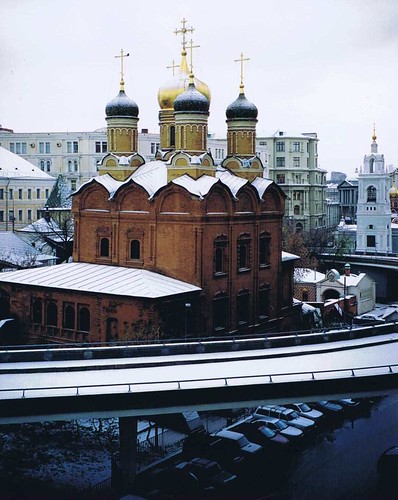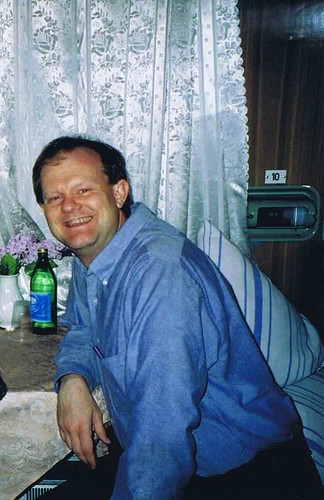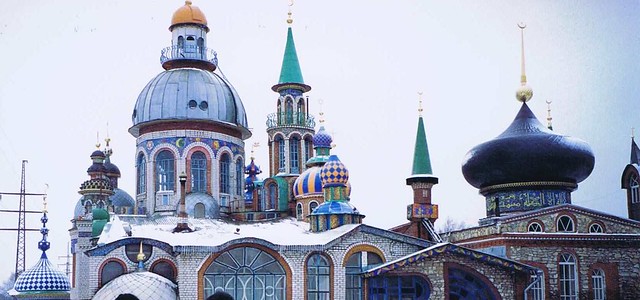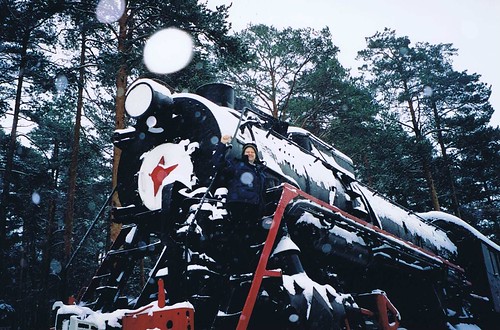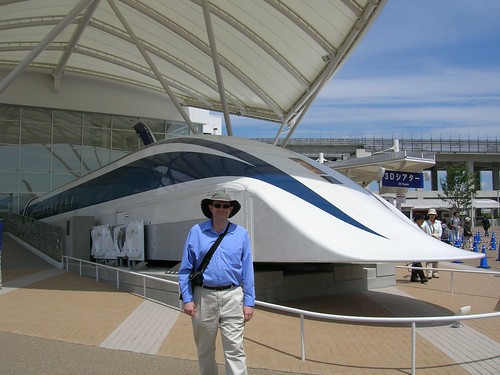Ideas for first trip to Japan.
1. Go with someone who has been to Japan.
2. Keep to areas of navigation where at least some signs are in English. That would say stay in Tokyo and Osaka and stick to train lines between city locations and to and from the airport.
3. It is a cash based society. So take/acquire cash. Get some from those who have been before. Check if your ATM will work with some of the big banks and withdraw in local currency. UBJ comes to mind.
4. DO NOT drive.
5. No special visa is required for Japan for US, Canadian/Commonwealth citcizens.
6. Fly JAL or ANA if you can afford it. Their service is much better than United, Northwest and American and on the long flight it is worth it.
7. Get a phrasebook and try to get the following:
-W5 (Who, What, Where, When, Why) and How,
-Greetings (bear in mind honorific and differences in first greetings vs later and family),
-Numbers (though deeper topic than expected in Japanese where counting depends on what is counted),
-Phrases for transit/directions, fast food, restaurants, washrooms, and your hobby/work/interests.
-Basic alphabet/syllabary (go for Katakana for foreign words first - more fun)
-Something interesting related to your work/goal/hobby (just one or two words).
-"Particles" are interesting to give you a picture of how the language works.If it helps the techno-types, Japanese is more of a stack context language than most. If you push an item onto the stack/context in a given role, it remains until you change that item.
8. Get a JR railpass (period - unless you are only there for a few days). There is no better mass-transit/train-pass deal in the world, and for any techno-types the Shinkansen is a must see. In Tokyo and Osaka the JR "subway" system is extremely useful. So even if you never leave Tokyo the JR Railpass is a great deal. Do not hesitate to try a short Shinkansen hop (like say out to Yokohama and back). Or ride out to the first stop north of Ueno and back. If you do rides at times of fair density you will only have to wait a few minutes for the return trip on major lines... or try a local train. Learn the stops on the Yamanote or Osaka-Loop Line.
9. See a museum related to your field.
10. Eat at Depato. Go to top floors or basement. Look at food models. Try something new. Enjoy. You will not generally run into anything too exotic first time out in a food hall (no fugu or whale or dolphin or horse or...). Try katsu. Try tempura.
11. Pick a cultural site to see. Tokyo: Asakusa Temples, Akihabara Electronic Town, Imperial Palace, Meiji Park, Ueno Park/Zoo, Tokyo University. Osaka: Temples, Den Den Town, shopping arcades.
12. Get an international cell phone plan or a Skype/SIP type device for WiFi. Getting plans inside Japan is hard becasue of ID and residency requirements (in post 9/11 world).
13. Japan is safe. If someone looks like they will help you, ask them for help. Accept their graciousness and be polite.
14. Exchange of business cards is important. You only get one shot at getting it right at first meeting. Have your cards clean and near at hand. Hand it over with two hands facing the recipient. Accept with two hands from those giving. Consider the card a moment. A polite question is not inappropriate (like what part of Yokohama is this district in your address? Or how do you exactly pronounce "x"?). Status is often assessed by card exchange.When you put away cards do not shove them in pants pockets. Show the card the same respect as the giver. Put it in a jacket pocket or a case or in your portfolio.
15. Stay at an international hotel near a JR station on a major metropolitan rail line. Leave ryokan and minshuku and such for later trips.
16. If you go off the beaten path in a metro area, you will probably get lost unless you have a great sense of absolute direction. It is not much of a worry if you have time to shift around a bit. Japan is safe. Try to find a map at an intersection. Try to get to a JR station.
17. Toilets: Western/Asian. Most hotels and department stores have western style toliets (at least as an option). It is helpful to know the Kanji for male/female in some off the beaten path spots, but if the postings are only in Kanji you will probably only get Asian style toilets.Carry some tissue (and a handkerchief?) with you. Some public toilets have no toilet paper or paper towels or dryers.Tissue lucklily is easy to come by from all the hawkers near major JR stations, shopping districts and department stores. Do not be offended by hawker snubs. It is probably more the case that hawkers are targetting male/females then Asian/foreign recipents. Be thankful you do not end up carrying arround tissues which have advertisements for hygiene products for the opposite sex.
18. Watch out for language restrictions in Internet/WiFi and web access. Not saying they will be there, but they have tripped users up before.
The following little PDF might be interesting...
http://www.links.net/vita/trip/japan/tokyo/guide/
http://www.links.net/vita/trip/japan/tokyo/guide/onscreen.html
Search for "Justin Tokyo" or "Just in Tokyo".


